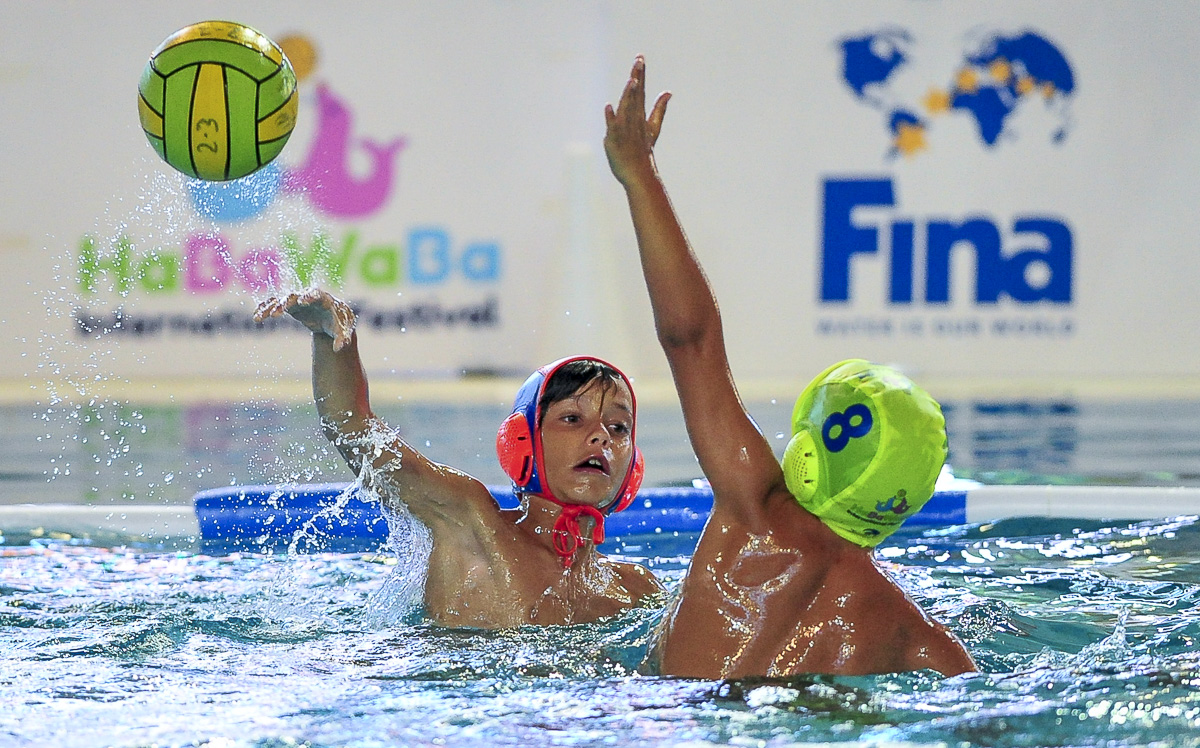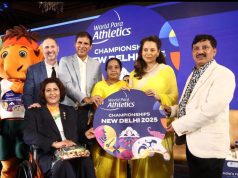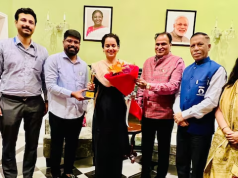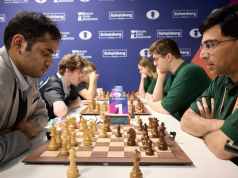Waterpolo is said to have developed around 1870. It was included in the Olympics in 1900, just 30 years after its inception. There is a constant effort to develop the sport in new countries. HaBaWaBa Festival plays a major role in developing the sport. This year, however, HaBaWaBa will change to HaBaWaBa Academy for covid crisis.
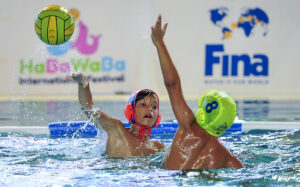
Historical Facts of Waterpolo
As world-famous Waterpolo coach Yiannis Giannouris spoke to Sportsavour, we came to know many hidden facts about Waterpolo. The sport had very little connection with Polo which is a game played on land on horseback.
The sport rather had more connection with Rugby and was initially called Water Rugby. But later, it came to be known as Waterpolo that originated from the pronunciation of Balti word for ball, ‘Pulu’.
The rules of the sport were developed around 1870 by William Wilson and became popular in England and Scotland. It featured in English county fairs and festivals. From England and Scotland the sport also travelled to other countries with the British navy officers who were generally Waterpolo players. While on their duty in the British colonies, those navy officers played it with the locals.
Waterpolo in the Olympics
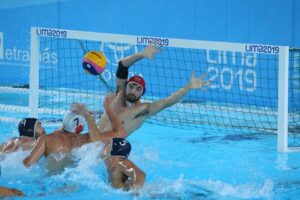 Within 30 years of developing the sport officially, the initiators were successful in taking Waterpolo to the Olympics. Since 1900, it has been included in every Summer Olympic Games as a men’s competition except 1896. Women’s Waterpolo made its debut in the Summer Olympics in 2000.
Within 30 years of developing the sport officially, the initiators were successful in taking Waterpolo to the Olympics. Since 1900, it has been included in every Summer Olympic Games as a men’s competition except 1896. Women’s Waterpolo made its debut in the Summer Olympics in 2000.
Hungary has dominated in the Olympics by winning 15 medals (9 gold, 3 silver and 3 bronze) in their 22 appearances. In fact, Hungary was one of the contestants in Blood In The Water Match, one of the most famous Waterpolo matches in Olympics history. It was the semifinal between Hungary and Soviet Union in 1956 Summer Olympics. It was the time when the Hungarian People’s Republic led a nationwide revolution against the Soviet-imposed policies. The political situation reflected in the match as both the teams played violently. The Hungarians defeated the Soviets 4–0 but the match had to be called off in the final minute. Soviet player Valentin Prokopov punched Hungarian player Ervin Zador which led to the publication of pictures of Zádor’s injuries in several newspaper.
Spread of Waterpolo
Water Polo has a huge sporting tradition but it is developed in certain pockets. Unlike other more famous team sports which enjoy a huge fan base, Water Polo lacks universality. It is hugely popular in European countries like Hungary, Croatia, France, Germany, Greece, Italy, Malta, Montenegro, Netherlands, Romania, Russia, Serbia Spain and other countries like USA, Brazil, China, Canada and Australia.
But the sport needs to be developed from the grassroot level. It is often understood that those swimmers who realise that they are unable to take part in high-level professional Swimming switch over to Wateolo. So, basically players start at the age of 16-17 to play Waterpolo. But to make a sport universal, the processes of talent detection and early development are critical in any programme.
Initiation of Waterpolo Development
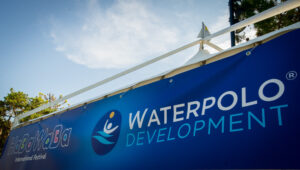 Waterpolo Development is a non-profit organisation that works towards development of Waterpolo worldwide. It was founded in 2007 by some of the most important personalities of the world Waterpolo scene. Its main objective is promotion, dissemination and development of Waterpolo in all continents in order to make it universally practised.
Waterpolo Development is a non-profit organisation that works towards development of Waterpolo worldwide. It was founded in 2007 by some of the most important personalities of the world Waterpolo scene. Its main objective is promotion, dissemination and development of Waterpolo in all continents in order to make it universally practised.
Waterpolo Development felt the need of tapping young guns when they are at the age of 6 or 7. Therefore they started a first-of-its-kind grassroot level programme, HaBaWaBa.
HaBaWaBa and Olympism
HabaWaBa is an acronym that means ‘Happy Baby, Water Ball’. Waterpolo Development works with a vision to include thousands of U-9, U-11 and U-13 kids from different countries and expose them to the competitive yet fun environment of Waterpolo.
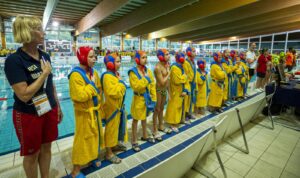
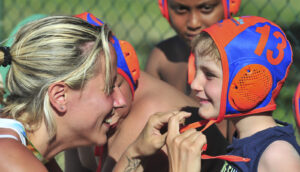 “HaBaWaBa is a new kind of Waterpolo; it’s a new kind of game. Before HaBaWaBa, people started playing Waterpolo at the age of 12 or 15, basically at a time when they understood that they could not swim at a high level. We said no, kids could start playing Waterpolo when they are younger. So we created this kind of Waterpolo for little athletes,” explained Fabrizio Napoli, journalist of wpdworld.com.
“HaBaWaBa is a new kind of Waterpolo; it’s a new kind of game. Before HaBaWaBa, people started playing Waterpolo at the age of 12 or 15, basically at a time when they understood that they could not swim at a high level. We said no, kids could start playing Waterpolo when they are younger. So we created this kind of Waterpolo for little athletes,” explained Fabrizio Napoli, journalist of wpdworld.com.
The goal of HaBaWaBa festival is to place the sport at the service of harmonious development of kids. During the time of festival, the organizers try to propagate a kind of Olympic environment. Fabrizio Napoli revealed, “The kids are all together in a village that is somewhat similar to the Olympic village concept. The little children are without their parents; they are with their coaches, their team managers. In this way they can have a lifetime experience that will help them in their future when they go on to participate in world events.”
HaBaWaBa since 2008
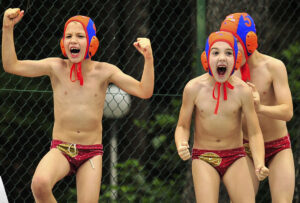 HaBaWaBa festival has commenced in the year 2008 with 24 teams. In 2019, the participating team rose to 136 with 1555 little Waterpolo players. “They have fun throughout the festival days. Apart from learning the sport and taking part in competition, the children are taught to be tolerant, patient and understanding,” Fabrizio Napoli further added.
HaBaWaBa festival has commenced in the year 2008 with 24 teams. In 2019, the participating team rose to 136 with 1555 little Waterpolo players. “They have fun throughout the festival days. Apart from learning the sport and taking part in competition, the children are taught to be tolerant, patient and understanding,” Fabrizio Napoli further added.
The rules of the matches in the festival are based on basic Waterpolo rules of FINA, the worldwide governing body for Swimming and Waterpolo. The main festival is located at Bella Italia Village in Ligano, Sabbiadoro, Italy. Large-scale HaBaWaBa events are being organized annually by National federations or clubs.
Presently, country-wise HaBaWaBa takes place in North America, Greece, Spain, Singapore, Switzerland, Egypt and Belarus. Waterpolo Development is set to begin the event in USA, France, Brazil and Argentina.
Rock & Pop- the Mascot of HaBaWaBa
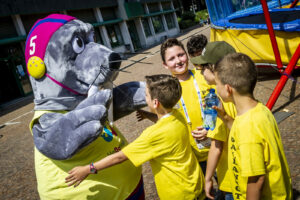 Rock & Pop encourages children to play by the rules and respect the opponents. The lively Rock & Pop roams across the HaBaWaBa villages to spread the message of ‘learning from defeats and remaining humble at wins’. The primary objective of this festival is to assist the development of Waterpolo but keeping in mind the social and moral values of sport. It educates the children to respect the water and the environment.
Rock & Pop encourages children to play by the rules and respect the opponents. The lively Rock & Pop roams across the HaBaWaBa villages to spread the message of ‘learning from defeats and remaining humble at wins’. The primary objective of this festival is to assist the development of Waterpolo but keeping in mind the social and moral values of sport. It educates the children to respect the water and the environment.
Fair Play- topmost priority in HaBaWaBa
Based on mutual respect and social integration, the fair play spirit of the teams is evaluated in each game with point from -4 to +4. The Fair Play trophy is awarded to the best team in this aspect. “In our events we don’t award single player or the best scorer. We just award the teams because what is important is a player’s experience with his co-players. The only individual award that we give is the ‘Golden Baby’, an award for the youngest player of the event,” said Fabrizio Napoli.
Impact of HaBaWaBa
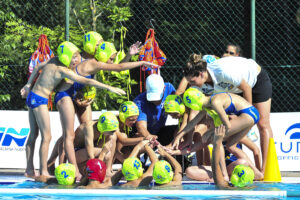 In the last 12 years, due to this project, about 25,000 children started playing Waterpolo. As a breeding ground for young Waterpolo players, this project of Waterpolo Development is definitely spreading its wings fast. In 2018 Rio Olympics, France’s national team at the Olympics incorporated Thomas Vernoux, a player who honed his skills at HaBaWaBa.
In the last 12 years, due to this project, about 25,000 children started playing Waterpolo. As a breeding ground for young Waterpolo players, this project of Waterpolo Development is definitely spreading its wings fast. In 2018 Rio Olympics, France’s national team at the Olympics incorporated Thomas Vernoux, a player who honed his skills at HaBaWaBa.
Fabrizio Napoli referred another example- “In the last edition of HaBaWaba international festival a Hungarian team lost to an Egyptian team. Hungary, which is the most important country in Waterpolo history lost because the Egyptian team regularly participated in HaBaWaBa festival, improved their skills and reached to this amazing result of defeating the champions.”
Thus, anything can happen at anytime in sports. So it is very necessary to have newer concepts and fresh ideas. HaBaWaBa is one such concept that is slowly changing Waterpolo globally. But this festival needs to be reached in new countries where the national federations have to come forward to take the onus.
Covid crisis turns HaBaWaBa Frstival into HaBaWaBa Academy
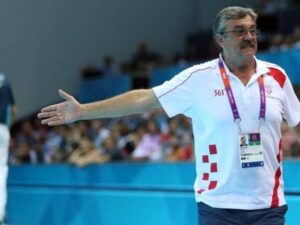
Due to the surge of coronavirus cases worldwide, Waterpolo Development has decided to turn the HaBaWaBa Festival into HaBaWaBa Academy under the technical directorship of Waterpolo legend Ratko Rudic. It will be an event of two-weeks where the teams that have already registered for the Festival will be given an opportunity to train together in a safe and hygienic environment. They will be under the guidance of some of the most skilled coaches of Waterpolo.
The prestigious names associated with this Academy are Italian legend Carlo Silipo, Olympic bronze medallists Francesco Postiglione and Fabio Bencivenga, noted Waterpolo coach Ildiko Szedlmayer and Mino Di Cecca, involved in the coaching procedure of junior Italian team.
The HaBaWaBa Academy is scheduled from August 30 – September 6, the time period when the HaBaWaBa Festival was going to take place. Similarly, from September 6 – September 13, when HaBaWaBa PLUS U13 should have beem held, it will be the turn of the U-13 teams.
Waterpolo Development is optimistic about the success of this new initiative among the little athletes. The organisers hope that when the magic of HaBaWaba returns in 2021, maybe they will continue the fun of HaBaWaBa Academy as well.

